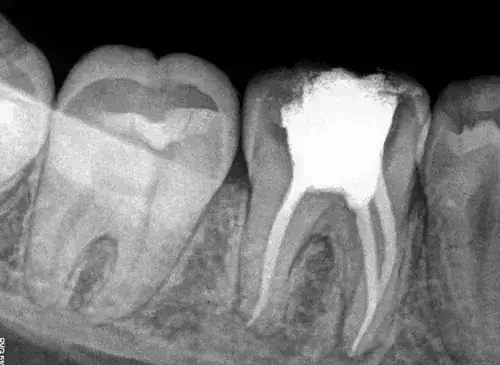- Home
- Medical news & Guidelines
- Anesthesiology
- Cardiology and CTVS
- Critical Care
- Dentistry
- Dermatology
- Diabetes and Endocrinology
- ENT
- Gastroenterology
- Medicine
- Nephrology
- Neurology
- Obstretics-Gynaecology
- Oncology
- Ophthalmology
- Orthopaedics
- Pediatrics-Neonatology
- Psychiatry
- Pulmonology
- Radiology
- Surgery
- Urology
- Laboratory Medicine
- Diet
- Nursing
- Paramedical
- Physiotherapy
- Health news
- Fact Check
- Bone Health Fact Check
- Brain Health Fact Check
- Cancer Related Fact Check
- Child Care Fact Check
- Dental and oral health fact check
- Diabetes and metabolic health fact check
- Diet and Nutrition Fact Check
- Eye and ENT Care Fact Check
- Fitness fact check
- Gut health fact check
- Heart health fact check
- Kidney health fact check
- Medical education fact check
- Men's health fact check
- Respiratory fact check
- Skin and hair care fact check
- Vaccine and Immunization fact check
- Women's health fact check
- AYUSH
- State News
- Andaman and Nicobar Islands
- Andhra Pradesh
- Arunachal Pradesh
- Assam
- Bihar
- Chandigarh
- Chattisgarh
- Dadra and Nagar Haveli
- Daman and Diu
- Delhi
- Goa
- Gujarat
- Haryana
- Himachal Pradesh
- Jammu & Kashmir
- Jharkhand
- Karnataka
- Kerala
- Ladakh
- Lakshadweep
- Madhya Pradesh
- Maharashtra
- Manipur
- Meghalaya
- Mizoram
- Nagaland
- Odisha
- Puducherry
- Punjab
- Rajasthan
- Sikkim
- Tamil Nadu
- Telangana
- Tripura
- Uttar Pradesh
- Uttrakhand
- West Bengal
- Medical Education
- Industry
What are key Predictors of Early Endodontic Treatment Failure after imary root canal treatment?

A recent study explored the predictors of early endodontic treatment failure which helps in enhancing the ability of clinicians to forecast outcomes and improve patient care. The key findings of this study were published in the recent edition of BMC Oral Health.
This retrospective cohort analysis by Young-Eun Jang and team from South Korea included the cases of 1262 patients who underwent endodontic treatment at dentistry department. After meticulous examination, 175 cases were deemed suitable for thorough analysis. Various factors potentially contributing to treatment failure were scrutinized, including the quality of obturation, coronal status, presence of additional untreated canals, anatomical complexity, instrument separation, iatrogenic perforation, cracks and endodontic-periodontal lesions.
The investigation into the influence of time since initial treatment was found to be of paramount importance. The patients were categorized into "short-term" (less than 5 years since treatment) and "long-term" (over 10 years since treatment) groups. This temporal distinction provided critical insights into the dynamics of treatment outcomes over time.
The findings revealed a significant association between the presence of untreated additional canals and short-term treatment failure. Also, untreated additional canals were prevalent in 36.9% of short-term failure cases when compared to the 6.4% in long-term failure cases. Further analysis demonstrated that these additional canals posed a substantial risk of failure within the first four years following treatment.
The outcomes urge clinicians to prioritize thoroughness during initial root canal procedures. The detection and treatment of all root canals at the outset significantly improved the long-term prognosis for the patients who underwent endodontic treatment. In conclusion, this emphasis on the meticulous treatment enhance the individual patient outcome and also contribute to the overall advancement of endodontic practice.
Source:
Jang, Y.-E., Kim, Y., Kim, S.-Y., & Kim, B. S. (2024). Predicting early endodontic treatment failure following primary root canal treatment. In BMC Oral Health (Vol. 24, Issue 1). Springer Science and Business Media LLC. https://doi.org/10.1186/s12903-024-03974-8
Neuroscience Masters graduate
Jacinthlyn Sylvia, a Neuroscience Master's graduate from Chennai has worked extensively in deciphering the neurobiology of cognition and motor control in aging. She also has spread-out exposure to Neurosurgery from her Bachelor’s. She is currently involved in active Neuro-Oncology research. She is an upcoming neuroscientist with a fiery passion for writing. Her news cover at Medical Dialogues feature recent discoveries and updates from the healthcare and biomedical research fields. She can be reached at editorial@medicaldialogues.in
Dr Kamal Kant Kohli-MBBS, DTCD- a chest specialist with more than 30 years of practice and a flair for writing clinical articles, Dr Kamal Kant Kohli joined Medical Dialogues as a Chief Editor of Medical News. Besides writing articles, as an editor, he proofreads and verifies all the medical content published on Medical Dialogues including those coming from journals, studies,medical conferences,guidelines etc. Email: drkohli@medicaldialogues.in. Contact no. 011-43720751


